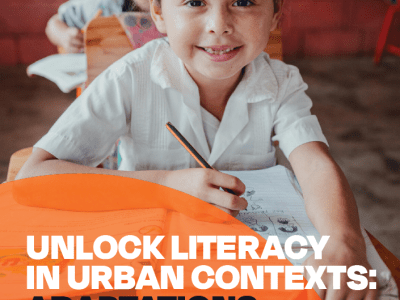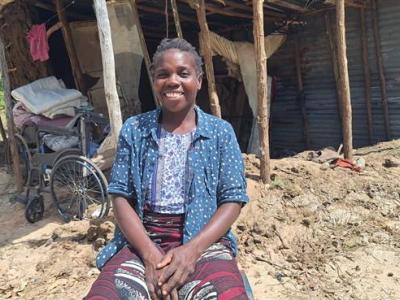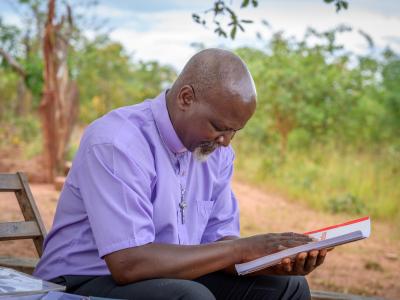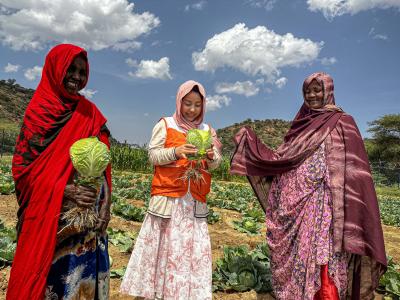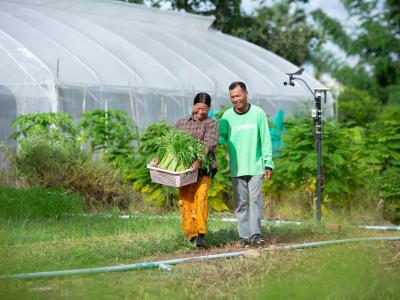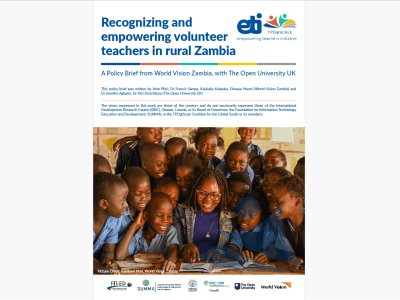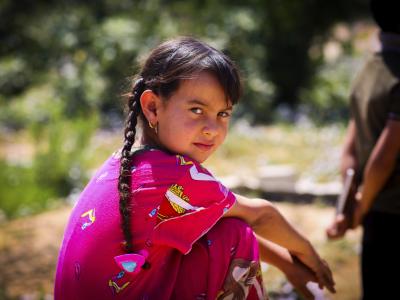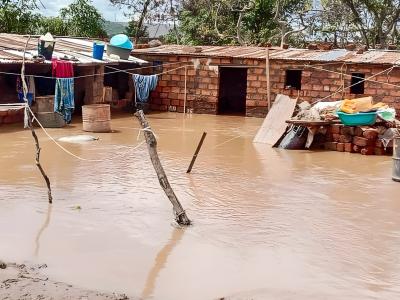publication / January 8, 2026
Unlock Literacy in Urban Contexts: Adaptations, Lessons, and Implications
Unlock Literacy boosts children’s reading in fragile urban settings through flexible, inclusive models, local partnerships, and adaptive learning approaches.
article / February 19, 2026
After the Flood in Guijá, Mozambique: Constância’s Story of Rebuilding
After devastating floods in Mozambique, Constância, a mother with a disability, relies on World Vision for emergency aid and recovery.
opinion / February 10, 2026
Peacebuilding: How faith leaders can be catalysts for change
Discover why locally rooted, conflict‑sensitive peacebuilding, especially through trusted faith leaders, is essential for lasting stability in fragile contexts.
opinion / November 17, 2025
Faith Matters – Driving Inclusive Development in Fragile Contexts
In fragile and conflict-affected settings, children and women often bear the brunt of overlapping crises: hunger, poverty, and violence collide to create unimaginable hardship.
article / November 28, 2025
The Long Game: Why Investing in Resilience Is Saving Lives in Fragile Contexts
As humanitarian needs soar and funding tightens, World Vision’s new guidelines aim to turn short-term fixes into lasting solutions. The Multi-year resilience programming is helping families withstand shocks, maintain food security, and safeguard children’s futures.
publication / February 20, 2026
Recognizing and Empowering Volunteer Teachers in Rural Zambia
Volunteer teachers are crucial in sustaining education in Zambia’s rural communities, ensuring children can access schooling where government resources are limited. Their deep connection to local contexts, commitment to learners, and ability to maintain community-school links have been central to providing education, especially in remote areas.
publication / January 20, 2026
Safe Returns Project, Ninawa Iraq (Fact Sheet)
A fact sheet highlighting the Safe Returns Project in Ninawa, Iraq, showcasing key outcomes, MSME impact, cost-benefit analysis, and lessons learned from a DFAT-funded initiative implemented by World Vision Iraq.
article / February 11, 2026
DR Congo: Fungurume Under Water: A Dual-Risk Crisis Requiring a Rapid, Child-Centred Response
This article highlights the severe flooding that struck Fungurume in Lualaba Province, Democratic Republic of the Congo, on 1 February 2026, affecting more than 3,200 people. Occurring in the midst of an ongoing cholera outbreak, the disaster has created a dual emergency, increasing risks of waterborne diseases, malaria, school disruption, and child protection concerns. With homes, schools, and health centres inundated, families face heightened vulnerability, particularly children. The article underscores the need for a rapid, coordinated, and child-centred humanitarian response focused on health, WASH, education continuity, shelter, and protection to prevent a worsening secondary crisis.
